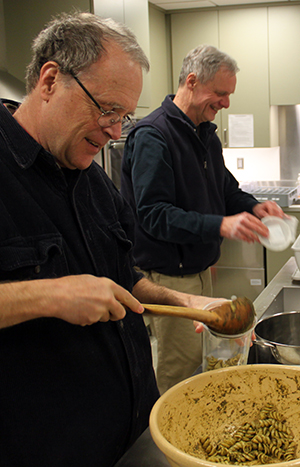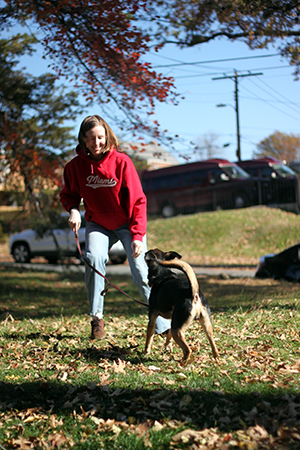 I’ve often heard this joke about Washington, DC: Here, people ask your job before they ask your name. That’s a slight exaggeration, but it has the ring of truth to it. DC is filled with extremely bright, highly motivated, driven people. This is a city of go-getters, one that centers itself around idealism, success, and career advancement.
I’ve often heard this joke about Washington, DC: Here, people ask your job before they ask your name. That’s a slight exaggeration, but it has the ring of truth to it. DC is filled with extremely bright, highly motivated, driven people. This is a city of go-getters, one that centers itself around idealism, success, and career advancement.
We are a city of workaholics. We work hard and play hard. We are always on, wired and connected. If we’re not occupied with something very important, we pretend to be. The appearance of busyness is a symbol of success. A packed schedule says: My life has meaning. I am in demand. I do important work.
It also serves as a defense mechanism. After spending long days on the job, DC offers up a cornucopia of extra-curriculars: seminars, concerts, demonstrations, cultural events, brunches and dinners. It would be easy to fill up a 20-hour schedule every day of the week, if the body and mind could endure it. Caught on an endless treadmill of very important things, it can seem like the only way to avoid total burnout is to excuse ourselves: I can’t, I’m sorry; I’m much too busy.
 As part of an effort to establish a new Quaker community here in DC, I have experienced busyness as one of the most profound barriers to the gospel. Busyness reduces connection between people, making us so task-oriented that we struggle to truly see one another. It speeds us up. We talk fast, think fast, schedule fast, and cancel fast. We’re often moving so quickly that we miss out on the incremental development of relationship. We accomplish a lot, but enjoy little.
As part of an effort to establish a new Quaker community here in DC, I have experienced busyness as one of the most profound barriers to the gospel. Busyness reduces connection between people, making us so task-oriented that we struggle to truly see one another. It speeds us up. We talk fast, think fast, schedule fast, and cancel fast. We’re often moving so quickly that we miss out on the incremental development of relationship. We accomplish a lot, but enjoy little.
Chronic busyness creeps in gradually, even when we think we’re on guard against it. This past year, I have been overwhelmed by too much, too many, and too fast. Even as I have intellectually recognized the danger of the super-charged DC lifestyle, I have somehow gotten caught up in it, too. How can the good seed of life grow among all these weeds?
There is a way out of this labyrinth. There is a way to greater peace, an open way of life that invites love, community and reconciliation. It is a way that requires us to release our need to control outcomes. We must truly believe that the world does not rely on us, and that God’s love is not conditional on how well we perform. We cannot work our way out of workaholism.
 A good place to start is prayer. What is prayer, after all, than the act of wasting time for the love of God and others? We can pray, not to accomplish a certain outcome, but simply in order to be present with God in loving relationship. As we extend this prayer outward into the rest of our lives, we can waste even more time, simply being present with others who have nothing tangible to give us. Just relationship, and an awareness of how God’s love is present in community.
A good place to start is prayer. What is prayer, after all, than the act of wasting time for the love of God and others? We can pray, not to accomplish a certain outcome, but simply in order to be present with God in loving relationship. As we extend this prayer outward into the rest of our lives, we can waste even more time, simply being present with others who have nothing tangible to give us. Just relationship, and an awareness of how God’s love is present in community.
The path out of busyness is to realize – to really know in our bones – that God does not operate like us. God does not keep a timesheet. God does not care about our resumés. God does not measure success in the ways we do. The Spirit is calling us to be present to her, and to others – to love just like Jesus loves.
Do you struggle with busyness? Is there a culture of over-work and unavailability in your area, like there is in mine? What are ways you have found to root yourself in the life and power that takes away the occasion for busyness? What has this cost you? What are the blessings you have received?